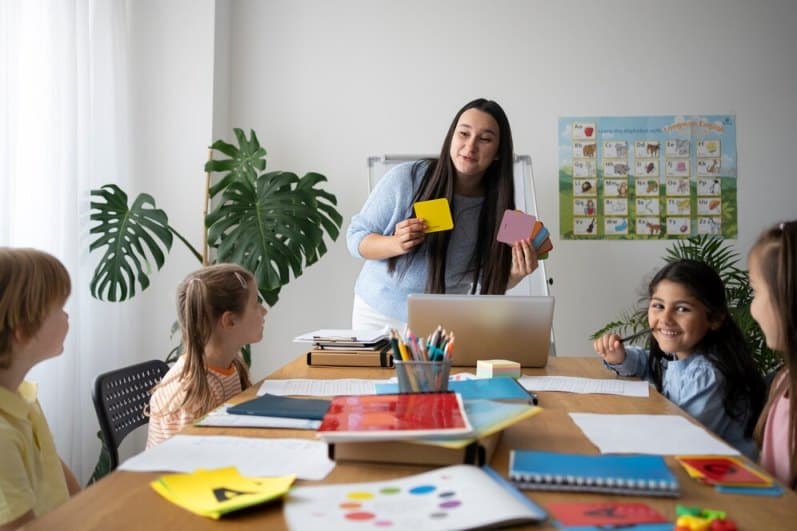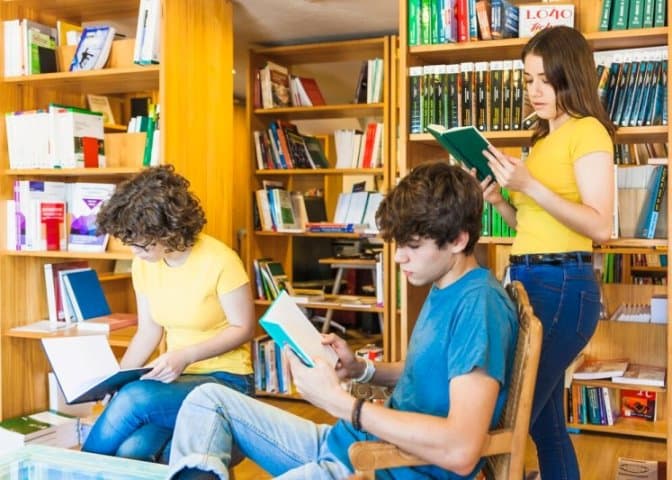Psychological and behavioral experts suggest that observational learning helps model and improve personality supremely. You can learn new skills and decrease negative behavior through it. Also, it helps you increasing positivity in your attitude and behavior.
Henceforth, observational learning has become the new buzz worldwide. However, you need to quickly understand the learning pattern and different stages of observational learning. Only then may you take full advantage of it.
What is Observational Learning?
Observational learning is a series of stages that helps the learner to pick the positive or negative traits to form a person.
Observational learning has four different stages or processes, including attention, retention, reproduction, and motivation. In the attention stage, learners focus on the person they want to learn something from. Next, in the retention stage, the learner keeps the information acquired through attention. Then, in the reproduction stage, one would try to reproduce the positive behaviors of the person you are following. In the motivational stage, the learner self-motivates himself to truly be attentive, learn and reproduce the positive characteristics of his idol.
At first glance, the four stages of observational learning appear pretty easy. But they are challenging to acquire into one’s mindset. So, let’s jump deep into these four stages.
4 Processes of Observational Learning
Four processes of observation learning are:
- Attention
- Retention
- Reproduction
- Motivation
We will now discuss them in detail.
Attention
Attention is the process of focusing on the person completely to observe his attitude, behavior, and traits. First, the learner decides to learn something from a person or his idle. Then, he must pay full attention to the person he is trying to follow.
He needs to observe him closely. Also, the learner may follow his physical attributes, walking style, way of speaking, and what the person does in different situations. Also, the attention process needs minute details. So, you must observe as closely as possible.
The following facts will control the learning ability in the attention stage:
- Learners usually pay more attention to people of the same age and sex. It sometimes restricts their observing skills.
- The physical condition of the observer will affect his focus and attentiveness. When the observer is tired, sick, or stressed, he can’t give his 100% focus. Thus, they may miss the minute details of the observing person.
- Finally, learners try to follow persons with higher social and economic prestige than them. That’s why most observers will indeed follow celebrities to mimic their attitudes.
Read: Social and Emotional Learning: What it is and Why it is important
Retention
In the attention stage, learners closely follow their following person’s behavioral and physical attributes and traits. Then, in the retention process, they will indeed retain the learned information from their following person.
Success in the retention stage depends largely on the memory power of the observer. Also, the more attentive the learner is, the more information he can retain. Also, the observer will need to repeatedly go back to the “attention” process to ensure that they have missed something.
The continuous shift between the attention and retention stage helps the observer finalize the character traits he wants to pick. Once the learner has chosen the behavioral and physical attributes he wants to keep and skip, he can proceed to the next stage.
Reproduction
This process of observational learning is self-explanatory. You have already fixed the behaviors and physical properties you want to mimic. So, it’s time to reproduce them within you.
However, recreating the behaviors from the attention and retention processes isn’t so easy. You will need to go through the trial and error process during this stage multiple times. As you keep trying and failing, slowly, you will acquire the traits in your character. The entire process of reproducing what you have observed and retained may take months.
Like the attention process, success in the reproduction process also depends on a few factors. These are:
Age and physical properties of the learner
The chances of successfully reproducing the behaviors and physical traits will depend on the age and physical ability of the follower. If the observer is too young and the person he follows is too old, they won’t match. Similarly, a senior person will fail to reproduce the traits of a young person.
For instance, a teen may not reproduce the walking and speaking style of Johnny Depp. It happens because Depp has a mature voice which the teen is yet to achieve before puberty. Similarly, a kid may not have the physical capacity to reproduce what Undertaker does in the wrestling ring.
Actual ability and skill level
Apart from age and physical ability, the reproducing ability also depends on the learner’s actual capacity. There’re some behaviors of your idle that is unique to him. You can’t reproduce them 100% perfectly or may need an extended time.
Also, kids will need more time to reproduce what they have learned in the attention and retention stage. For instance, a toddler may have seen his parent cleaning their clothes or watering the garden. It will be difficult for him to clean the cloth.
Nonetheless, he will find it easier to water a few small plants. So, the process depends and varies on the learning and reproducing ability.
Difficulty level for the behaviors
It shows how much time the observer will need to reproduce the behavior of his followed model. It depends on the difficulty level of the traits the learner wants to acquire from the model. The observer may easily acquire the simpler skills shortly. However, he will need time to mimic the tougher skills.
For instance, the observer might easily reproduce how Donald Trump walks or looks. But, it will be difficult for him to give a speech identical to Trump. It requires him to learn where Trump gives pauses or emphasizes during the speech.
Motivation
Although motivation is the fourth process of observational learning, it’s most important. The leaner must be self-motivated. Or else, he can never follow his model thoroughly and minutely. Also, the observer will fail miserably to retain the information from the attention process without motivation.
On top of it, observational learning is a long process. Thus, motivating yourself is the key to reproducing the character and physical traits of the model.
Conclusion
Observational learning is the key to acquiring positive attributes from dignified persons. It helps you in developing your personality better. Plus, observational learning improves your attentiveness, skills, and efficiency.
Furthermore, this learning process is useful in many professions, such as acting. The four stages of observational learning will, thus, help you in your personal and professional life.






